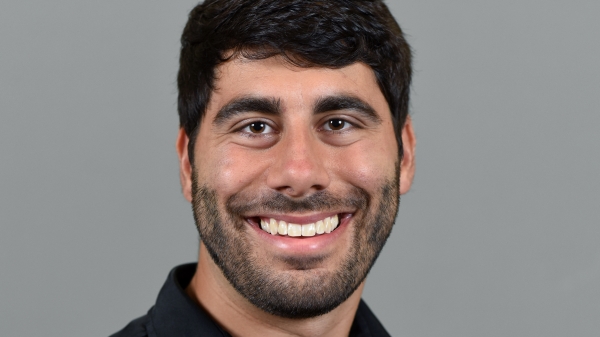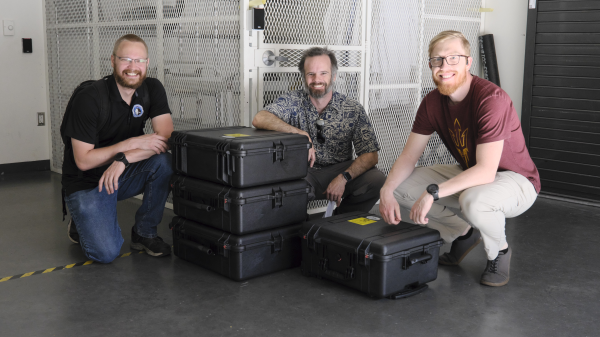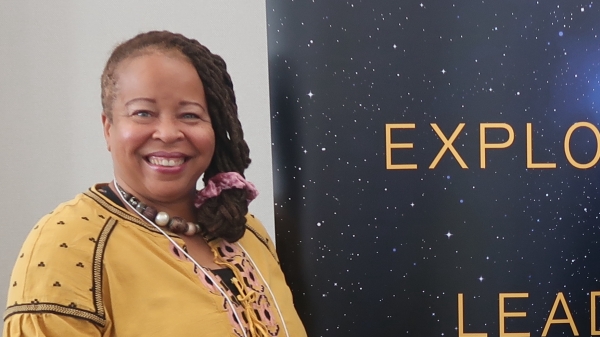National Humanities Center renews partnership with Lincoln Center for responsible AI research

Image courtesy Pexels
The National Humanities Center has announced that Arizona State University's Lincoln Center for Applied Ethics is one of four organizations to receive funding for the second phase of their Responsible AI Curriculum Design Project, identifying it once again as a leading institution conducting research in the field of humane technology.
The Lincoln Center was originally identified in the first round of awards from NHC in 2021, which was launched with support from Google to generate undergraduate curriculum on responsible AI. Their participation resulted in the development of the first class at ASU about the human impacts of AI.
“As AI tools become more accessible and we move to integrate them into more aspects of our lives, it is crucial to keep human well-being the core guiding principle,” says Sarah Florini, interim director of the Lincoln Center and an associate professor of film and media studies. “The Lincoln Center is focused on imagining a future where technology is centered on the human, which is vital in this moment.”
The project supports a partnership with Mesa Community College to develop responsible AI curricula. Florini will be partnering with Dave Yount, professor of philosophy and religious studies at MCC, to develop courses and materials for both institutions. Paulette Stevenson, English faculty and director of writing programs at MCC, will collaborate on the project.
This award comes after the Lincoln Center launched two workgroups this semester focusing on artificial intelligence, convening scholars from across ASU to investigate the impacts of AI as part of the center’s focus on ethical innovation and humane technologies.
The two workgroups address the ethics and the sustainability of AI, and include members from The College of Liberal Arts and Sciences, the Ira A. Fulton Schools of Engineering, the New College of Interdisciplinary Arts and Sciences, the College of Integrative Arts and Sciences, the College of Global Futures, and the Herberger Institute for Design and the Arts.
The formation of these groups is spearheaded by Florini and is organized in collaboration with Erica O’Neil, a research program manager at the Lincoln Center. These research-focused groups highlight strategic priorities of the center, which focus on human flourishing as the most crucial outcome of technological innovations.
Florini co-chairs the AI & Ethics workgroup with Nicholas Proferes, an associate professor in the School of Social and Behavioral Sciences whose research centers on data ethics and policy.
“It’s so cool to be at ASU, because it is a leader in a lot of ways in terms of integrating AI into the classroom,” Proferes says. “But it also gives us a moment to reflect on the adoption process. We are asking the questions that need to be asked.”
The ethics group seeks to engage in critical discussions about technologies often referred to as “AI” and their broader potential impacts, and shape practices that result in the development of more responsible AI.
“I’m particularly interested in how we develop effective policies around AI,” Proferes says. “One of the things we’re really looking forward to with this group is to create a space where we can engage deeply in these conversations — not just how we (integrate AI) at ASU, but how it will impact education as a whole.”
Similarly, the sustainability cohort aims to develop discourse around AI that prioritizes sustainability measures over the exponential, unchecked growth of technological innovations.
“Scaling artificial intelligence to match the ideological aspirations of the private sector will require an exponential increase in computational power, which means more data centers,” O’Neil says. “Arizona is a hot market for these energy intensive centers that require a huge amount of water to operate.
“Do we want to use all the drinkable water in the Southwest to cool data centers so we don’t have to summarize meeting notes or write emails? Our workgroup explores the tensions between resource allocation and value additions of AI.”
With the renewed partnership between the National Humanities Center and the Lincoln Center, ASU students can expect AI engagement in the classroom that has been developed in direct collaboration with leading experts and technologists at Google. The new class will be offered during the 2025–26 academic year.
This summer, the Lincoln Center will also be launching a third workgroup focused on reparative archives and digital humanities, organized by the Digital Humanities Initiative. This group will explore postcolonial archives, cultural heritage work in AI, and more.
“The Lincoln Center aims to create a variety of opportunities to engage with the ethical implications of AI, including through undergraduate courses, faculty research and public-facing conversations," Florini says. "Through these RAI projects and the workgroups, we are laying a foundation for sustained and vigorous dialogue around these issues.”
More Science and technology

Leading students toward a future of renewable energy
Nicholas Rolston, assistant professor in the School of Electrical, Computer and Energy Engineering, one of the Ira A. Fulton Schools of Engineering at Arizona State University, has found his passion…

SPARCS mission spacecraft bus delivered to ASU for final assembly
The Arizona State University team that is building the NASA-funded Star-Planet Activity Research CubeSat, or SPARCS, cleared a major milestone this week — receiving its spacecraft bus at the School…

Associate professor shares her journey from NASA to ASU
From leading space missions to designing and building spaceflight hardware and training students in space science and engineering, Arizona State University is proving that space is more than a…